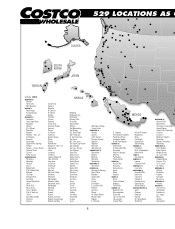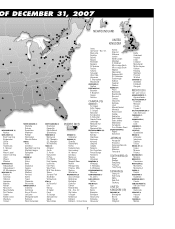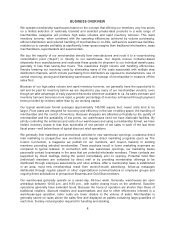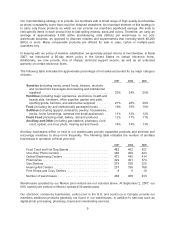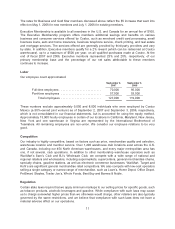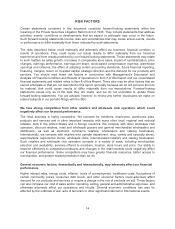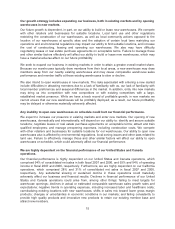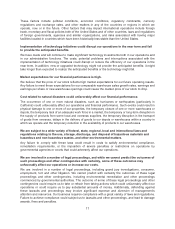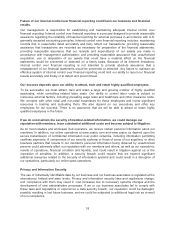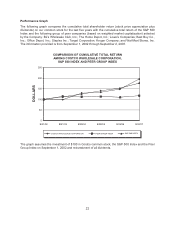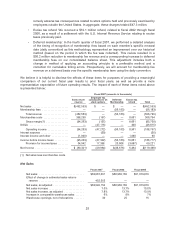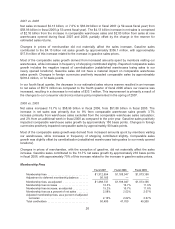Costco 2007 Annual Report Download - page 18
Download and view the complete annual report
Please find page 18 of the 2007 Costco annual report below. You can navigate through the pages in the report by either clicking on the pages listed below, or by using the keyword search tool below to find specific information within the annual report.We depend on vendors to supply us with quality merchandise at the right time and at the right
price.
We depend heavily on our ability to purchase merchandise in sufficient quantities at competitive prices.
We have no assurances of continued supply, pricing or access to new products, and any vendor could
at any time change the terms upon which it sells to us or discontinue selling to us. Sales demands may
lead to insufficient in-stock positions of our merchandise.
We purchase our merchandise from numerous domestic and foreign manufacturers and importers. We
have thousands of vendor relationships. Our inability to acquire suitable merchandise on acceptable
terms or the loss of key vendors could negatively affect us. We may not be able to develop
relationships with new vendors, and products from alternative sources, if any, may be of a lesser
quality and/or more expensive than those from existing vendors.
Our vendors are subject to risks, including labor disputes, union organizing activities, financial liquidity,
inclement weather, natural disasters, supply constraints, and general economic and political conditions,
that could limit their ability to timely provide us with acceptable merchandise. For these or other
reasons, one or more of our vendors might not adhere to our quality control or legal or regulatory
standards. These deficiencies may delay or preclude delivery of merchandise to us and might not be
identified before we sell to our members. This failure could lead to litigation and recalls, which could
damage our reputation and our private label brand, increase our costs, and otherwise hurt our business.
In addition, the United States’ foreign trade policies, tariffs and other impositions on imported goods,
trade sanctions imposed on certain countries, the limitation on the importation of certain types of goods
or of goods containing certain materials from other countries and other factors relating to foreign trade
are beyond our control.
We may not timely identify or effectively respond to consumer trends, which could negatively
affect our relationship with our members, the demand for our products and services, and our
market share.
It is difficult to consistently and successfully predict the products and services our members will
demand. The success of our business depends in part on our ability to identify and respond to evolving
trends in demographics and consumer preferences. Failure to timely identify or effectively respond to
changing consumer tastes, preferences and spending patterns could negatively affect our relationship
with our members, the demand for our products and services and our market share.
Changes in accounting standards and subjective assumptions, estimates and judgments by
management related to complex accounting matters could significantly affect our financial
results.
Generally accepted accounting principles and related accounting pronouncements, implementation
guidelines and interpretations with regard to a wide range of matters that are relevant to our business,
such as revenue recognition, sales returns reserve, impairment of long-lived assets and warehouse
closing costs, inventories, self insurance, stock-based compensation, income taxes, unclaimed
property laws and litigation, are highly complex and involve many subjective assumptions, estimates
and judgments by our management. Changes in these rules or their interpretation or changes in
underlying assumptions, estimates or judgments by our management could significantly change our
reported or expected financial performance.
Our international operations subject us to risks associated with the legislative, judicial,
accounting, regulatory, political and economic factors specific to the countries or regions in
which we operate, which could adversely affect our financial performance.
Our international operations could form a larger portion of our business in future years. Future operating
results internationally could be negatively affected by a variety of factors, many beyond our control.
16


